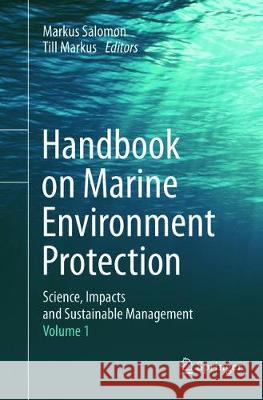Handbook on Marine Environment Protection: Science, Impacts and Sustainable Management » książka
topmenu
Handbook on Marine Environment Protection: Science, Impacts and Sustainable Management
ISBN-13: 9783030096519 / Angielski / Miękka / 2019 / 1024 str.
Kategorie:
Kategorie BISAC:
Wydawca:
Springer
Język:
Angielski
ISBN-13:
9783030096519
Rok wydania:
2019
Wydanie:
Softcover Repri
Ilość stron:
1024
Oprawa:
Miękka
Wolumenów:
02











